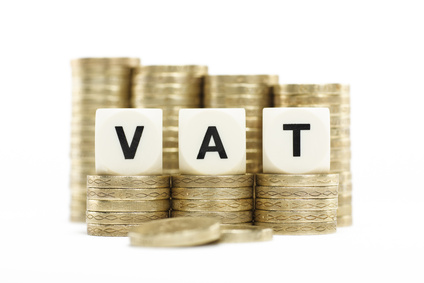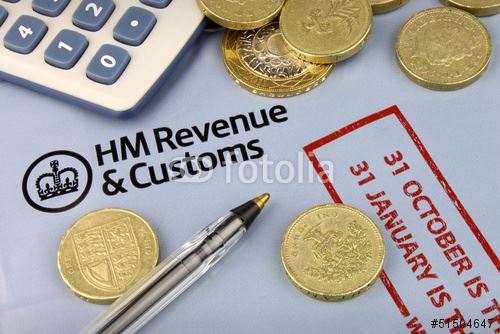 If you are a VAT registered business you should always be prepared for a VAT inspection. Do you keep your accounts records up to date so you can instantly lay your hands on the paperwork the VAT Inspector is asking for?
If you are a VAT registered business you should always be prepared for a VAT inspection. Do you keep your accounts records up to date so you can instantly lay your hands on the paperwork the VAT Inspector is asking for?
I have dealt with visits from HMRC VAT Inspectors for a half a dozen of my clients over the years. Of course you wonder why, especially when they are very short notice, but generally there is a reason such as following up on an inspection they have had with one of your customers or suppliers, or because they pay particular attention to your type of trade.
I view every inspection or inquiry as an opportunity to learn more about VAT and understand what the VAT Inspectors are looking for. VAT can be complex and whilst I expect my clients to understand the VAT implications of the products or services they sell, as bookkeepers we need to understand when and how to claim VAT on expenses. We need to understand the different VAT codes and how these relate to the different goods and services which are bought. Yes, when I hear from the VAT Inspector I wonder what I might have done wrong but I am also very aware I don’t have all the knowledge and whilst I keep up to date there are probably just some more complex areas of VAT that I just haven’t come across.
When I review accounts for companies I often come across transactions where VAT has been claimed on items which are not VATable. So many business owners entrust their accounts to an administrator who has no knowledge or experience of bookkeeping or VAT and therefore the risk of error can be much higher than using a qualified, experienced bookkeeper.
The reason for writing this blog now is that one of my clients recently had a VAT inquiry. It became noticeable to the VAT inspector following four consecutive refund returns but as a new company it is investing heavily in lots of equipment and materials and only minimal sales will occur until production starts. We had done all the VAT returns so were quite confident about their content. I had a telephone conversation with a very nice VAT Inspector who requested a copy of the VAT report showing all the VAT transactions and a copy of the largest 6 VAT invoices. I was able to provide this information promptly and some further information which satisfied the VAT Inspector and he released the refund within 10 days of the call. It was important for our client that we respond quickly as the VAT refund assists cash flow.
What this VAT inquiry highlights is that VAT receipts or VAT invoices are a necessity if you are going to claim the VAT. If we weren’t able to produce VAT invoices for the six largest transactions the VAT inspector would start wondering if we had paperwork to support the other transactions we had claimed VAT on. As a practice we ensure we have VAT receipts for all the transactions we claim VAT for and we make sure our clients understand that if there is no VAT receipt we will not claim the VAT. We encourage them to provide us with VAT receipts and will often tell them how much more VAT they could have claimed if they could just get us the invoices! Unsurprisingly more invoices generally appear!
And of course VAT can only be claimed on invoices addressed to the company or the business owner and only if the purchase is for business use. If your purchase is part business, part personal then you would be able to claim a proportion of the VAT but you cannot claim VAT on any items for personal use.
So what did I learn from this?
- EC Acquisitions, if they are goods or services which would have VAT on but are zero rated because we have provided our VAT number, must show the VAT element in both Box 1 and Box 4 of the VAT return even though there is no VAT due. I had chosen a code which showed the product to be a zero rated EC Acquisition rather than a standard rated EC Acquisition which had been zero rated (work that out if you can!) and therefore there was no VAT element in Box 1 and Box 4. The value of the services – £22 with no VAT due.
- You cannot claim VAT if an invoice is addressed to a company other than the VAT registered company, even if they are connected by having the same directors. The invoice must go through the company it is addressed to and then recharged to the other company if required for accounting purposes. The way around this if you have connected companies is to have a Group VAT registration.
 I talked about this inspection at our team meeting so that everyone was aware of what happens, what information is requested, the importance of following our VAT procedures, the outcome and what can be learned.
I talked about this inspection at our team meeting so that everyone was aware of what happens, what information is requested, the importance of following our VAT procedures, the outcome and what can be learned.
VAT inspections and inquiries are an opportunity to learn more about VAT. Very few people make VAT errors on purpose and inquiries are often carried out to check that businesses understand what they are doing. An inspection carried out on a newly established business which was a client of mine was extremely helpful in establishing how best to make the calculation for partial exemption. The business supplied exempt and standard rated goods and therefore could not claim VAT back on all its purchases but only on a proportion in relation to the standard rated sales. We were able to ask lots of questions and it really helped the business owner and I to understand this complex VAT situation.
So if you get a call from a VAT Inspector don’t worry – unless of course you know their are errors. Think of it as a learning experience. And if your accounts aren’t organised enough for when the VAT Inspector calls find a bookkeeper who has the experience and knowledge to keep them in order!
Leave a Reply